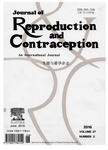Analysis of Childhood Sexual Abuse among 1099 University Students in Shanghai
Analysis of Childhood Sexual Abuse among 1099 University Students in Shanghai作者机构:Shanghai Institute of Planned Parenthood Research Shanghai 200032 China Department of Reproductive of Health and Research World Health Organization
出 版 物:《Journal of Reproduction and Contraception》 (生殖与避孕(英文版))
年 卷 期:2010年第21卷第1期
页 面:53-61页
学科分类:090603[农学-临床兽医学] 030505[法学-思想政治教育] 03[法学] 030501[法学-马克思主义基本原理] 09[农学] 0906[农学-兽医学] 0305[法学-马克思主义理论]
基 金:supported by World Health Organization (project number A65308)
主 题:childhood sexual abuse perpetrator sexual intercourse forced sexual intercourse
摘 要:Objective To understand the situations of childhood sexual abuse (CSA) and to examine associations of CSA with demographic factors and with later risk behaviors among university students in Shanghai, China. Methods A two-stage random sampling method was adopted to conduct the survey anomalously using electronic questionnaire and computer-assisted-structured-interview method. Results About 15.1% (10.2% among male, 18.2% among female) university students reported having had experienced CSA before age 14, 1.2% university students reported having had experienced abuse of attempted vaginal or anal intercourse and 0.8% university students experienced abuse of forced vaginal or anal intercourse. The perpetrators were mainly strangers (accounting for 40.3%) and classmates or friends of the victims (23.9%). Family members or relatives accounted for 11.3% of the perpetrators. Female students who came from cities (21.9%) reported more CSA experiences than those who came from townships (10.1%) or rural areas (8.2%). Association between CSA experiences of victims and their parents education levels was not found. Those respondents who had ever experienced CSA before age 14 had reported more later risk behaviors than those who had not experienced CSA: males with CSA reported more experiences of ever fighting and more often involved in forced sexual intercourse than those without CSA, while females with CSA reported more experiences of smoking, running away from home, ever fighting, watching pornography and more unmarried sexual intercourse than those without CSA. Conclusion CSA is not rare among university students and associated with later risk sexual behaviors. It is important and urgent to pay attention to the issue of CSA and take prevention measures to protect children.



